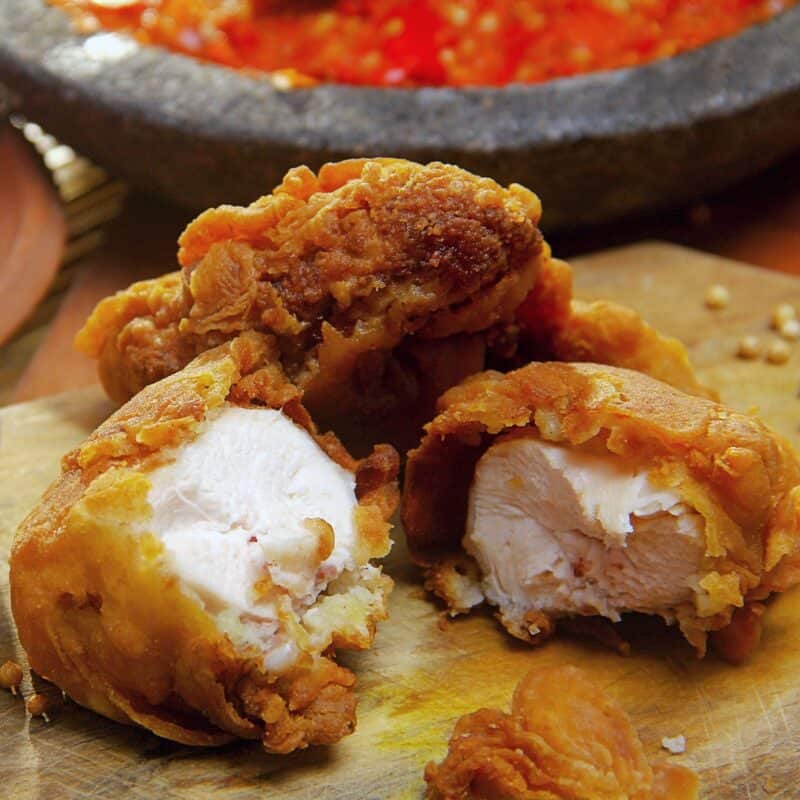by
There are so many different ways to use meat scraps in your kitchen. You can use them to make stocks, and sauces, or simply add them to your favorite recipes.

In this blog post, I’ll give you some ideas of how you can use your meat scraps in a frugal and eco-friendly way. Remember, composting is an option – but only if you do it the right way.
What You Can Do With Meat Scraps
1. Make a Stock or Broth
Chicken, beef, and vegetable scraps can all be used to make homemade broth. Simply simmer the scraps in water for several hours, then strain out the solids and enjoy your delicious and healthy broth. Broth can be used in soups, stews, or sauces, or simply enjoyed on its own.
2. Get Creative With Your Recipes
Don’t be afraid to think outside of the box and come up with some fun new uses for your meat scraps!
If you have pets, they may be happy to help you reduce your food waste. Dogs and cats can safely eat most cooked meats, so feel free to add meat scraps to their food or treat them to a special meal of table scraps.
Just be sure to avoid feeding them raw meat, as this can pose a health risk.
3. Freeze Them for Later Use
While composting is a great way to reduce your carbon footprint and provide nutrients for your garden, it’s not the only way to deal with meat scraps. You can also freeze them for later use.
This is a particularly good option if you live in an apartment or other small space where composting may not be possible. It’s also a great way to extend the shelf life of leftovers.
To freeze meat scraps, simply place them in a freezer-safe container and store them in your freezer until you’re ready to use them.
When you’re ready to use them, simply thaw them in the refrigerator and add them to your favorite recipe.
4. Can Meat Be Used as Fertilizer?
There are a few benefits to using meat as fertilizer. First, it provides a good source of nitrogen, which is an essential nutrient for plants.
Second, it can help to improve the structure of your soil. And third, it can attract beneficial insects such as earthworms, which help to aerate the soil.
Of course, there are also some drawbacks to using meat as fertilizer. First, it can attract unwanted animals such as rats and mice.
Second, it can make your soil too acidic if used in large quantities. And third, it can create an unpleasant smell.
So, should you use meat as fertilizer?
Ultimately, the decision is up to you. If you’re looking for a natural nitrogen source that can improve your soil quality, then meat may be a good option.
But if you’re concerned about attracting pests or creating an unpleasant odor, then you might want to consider another type of fertilizer.
5. Can I Bury Spoiled Meat?
You may have heard that you can bury spoiled meat to help keep pests away.
While this method may be effective in some cases, it is not always the best option. For one thing, burying meat can attract animals that dig up the ground in search of food.
This can include everything from rats and raccoons to bears and coyotes. In addition, buried meat can start to rot, which can release harmful bacteria into the ground.
And if the meat is not buried deep enough, it may simply attract flies and other insects. If you do choose to bury spoiled meat, be sure to do so carefully.
Can You Compost Meat Scraps?
You may have heard that you can compost just about anything, but is that really true? Can you really do it?
While it is technically possible to compost meat scraps, there are a few things you should know before you add them to your compost pile.
Pests are attracted to the smell of rotting meat, and if they get into your compost bin, they can quickly multiply and become a nuisance.
In addition, diseases that are harmful to humans can be transmitted through contact with contaminated compost.
Meat breaks down slowly and can attract unwelcome pests. The best way to compost meat is to mix it with other organic matter, such as leaves or kitchen scraps.
This will help to speed up the decomposition process and keep animals away. You should also avoid adding too much meat to your compost pile at once, as this can slow down the breakdown of other materials.
While meat will eventually break down, the process can be slow and smelly.
If you’re willing to take these precautions, then composting meat scraps can be a great way to reduce your reliance on traditional waste disposal methods.
Final Thoughts
So, what can you do with meat scraps? The possibilities are endless! You could use them to make broth, soup, or chili.
You could add them to your next batch of burgers or meatloaf. Or you could even use them as a topping on pizza or pasta.
No matter how you choose to use them, just be sure to consider this valuable and nutritious source of protein. And when all else fails, know that composting your meat scraps is an option – just as long as you do it the right way.
Follow the tips above for safe and sanitary composting – and get creative in your approach to dealing with food waste of all kinds!
No comments:
Post a Comment